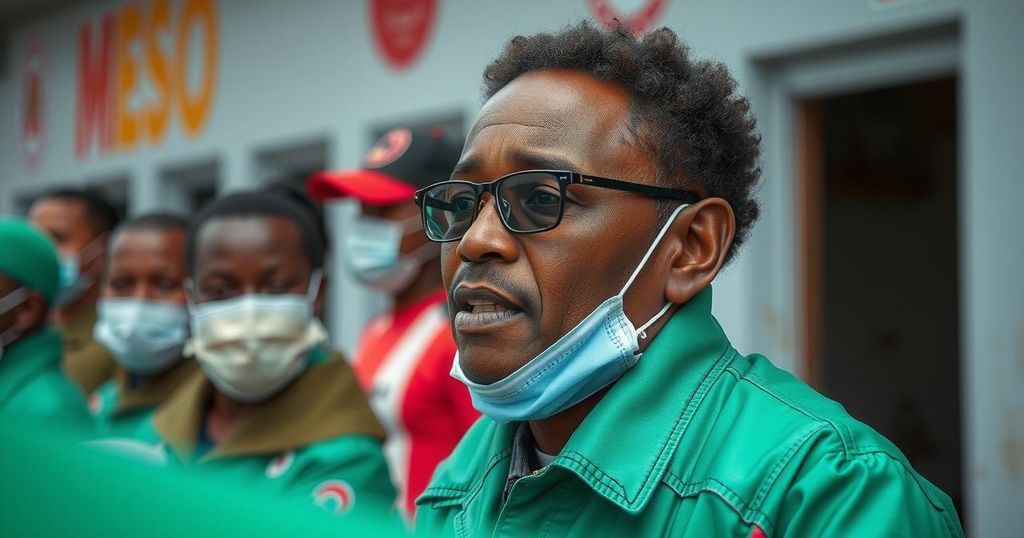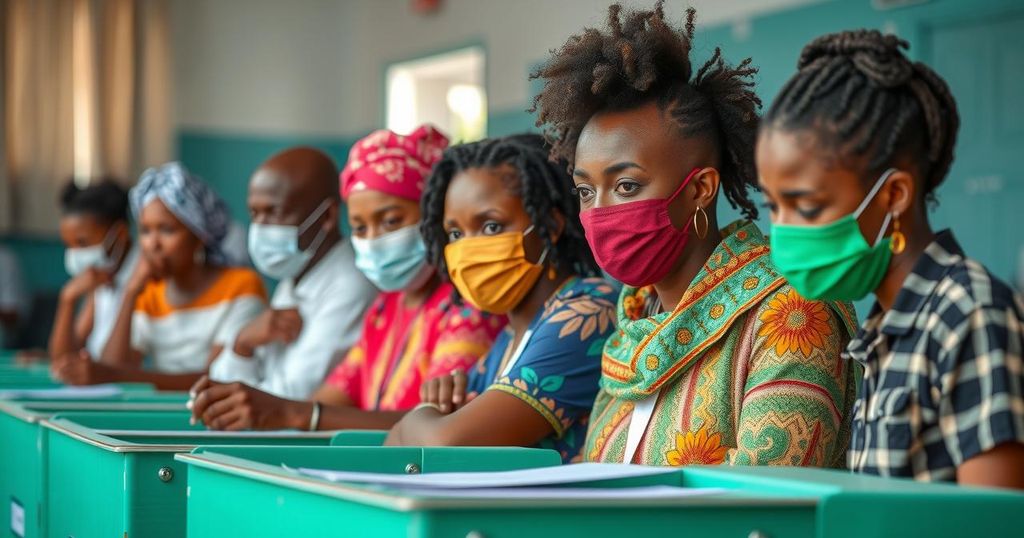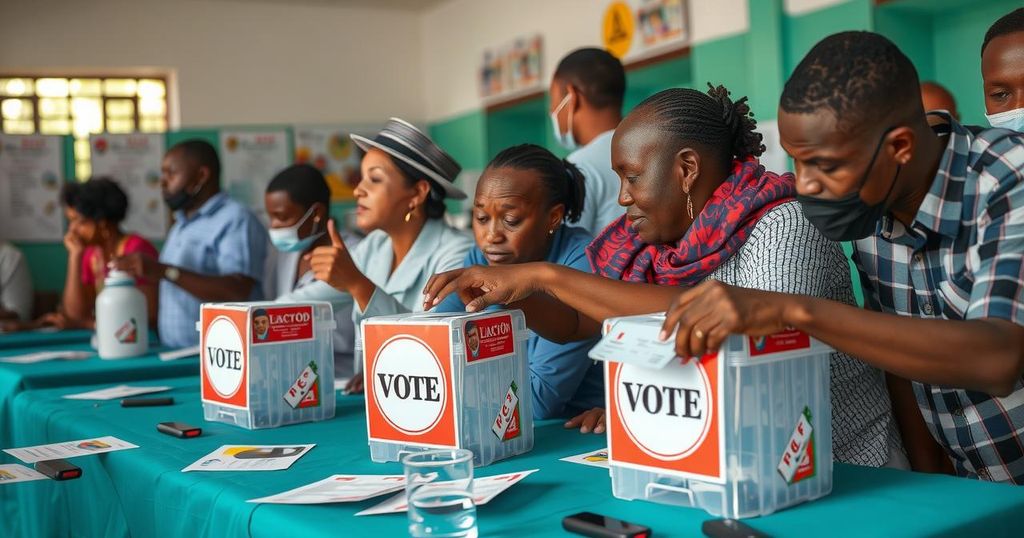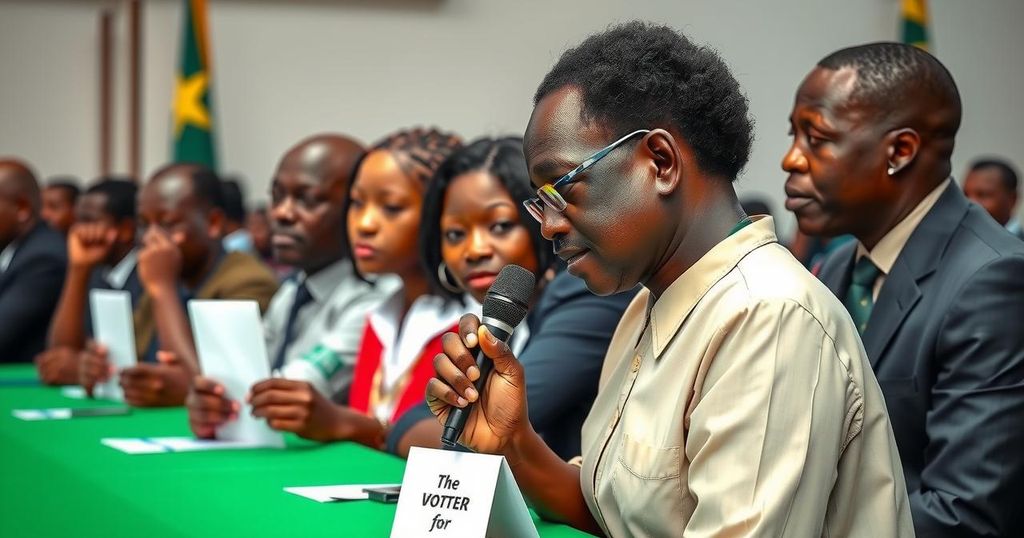Comoros Faces Electoral Challenges as Opposition Boycotts Elections
The Comoros held parliamentary elections on Sunday amid opposition boycotts and accusations of vote rigging. President Azali Assoumani’s son, Nour El Fath Azali, is running for a seat while issues such as delayed polling and lack of privacy at voting booths raised concerns over election integrity. The CRC party is expected to continue its dominance in parliament following this election.
The Comoros, an island nation in the Indian Ocean, held parliamentary elections on Sunday amidst widespread opposition boycotts, citing a lack of legitimacy and transparency in the electoral process. The eldest son of President Azali Assoumani, Nour El Fath Azali, is contesting for a seat just outside Moroni, the capital. Reports indicate that some polling stations experienced significant delays due to logistical issues, with instances of improvised voting booths lacking proper privacy for voters. Observers noted these complications as detrimental to the electoral integrity.
Prior to his recent appointment, Nour served as an advisor to his father, who has faced allegations of authoritarian rule. Despite a January 2024 re-election that was marred by controversy, supporters of the ruling Convention for the Renewal of the Comoros (CRC) Party are expected to dominate the legislature, with some candidates facing no challengers. Approximately 340,000 registered voters participated in the vote, which will require a second round on February 16, 2024.
The political landscape in the Comoros has been tumultuous, particularly since President Azali Assoumani came to power following a coup in 1999. His administration has been characterized by increasing authoritarianism, culminating in a contested election in January 2024, leading to public unrest and violence. Experts suggest that the political climate raises concerns over electoral processes, particularly regarding the legitimacy of votes when opposition parties choose to boycott due to fears of electoral fraud and manipulation. The current parliamentary elections are further complicated by allegations against Nour El Fath Azali, who has acquired significant influence within the government, prompting critics to label him as a de facto prime minister.
In summary, the recent parliamentary elections in the Comoros reflect a deeply divided political landscape marked by opposition boycotts and allegations of electoral fraud. The logistical challenges faced at voting stations underscore concerns over the electoral process’s integrity. The anticipated dominance of the ruling CRC party signifies ongoing challenges to democratic governance in the country, raising questions about future political stability as the next voting round approaches on February 16, 2024.
Original Source: www.barrons.com




Post Comment